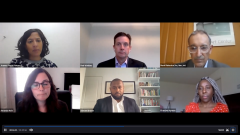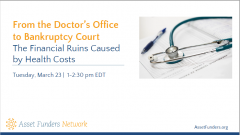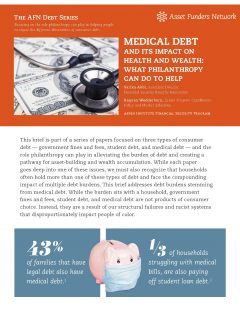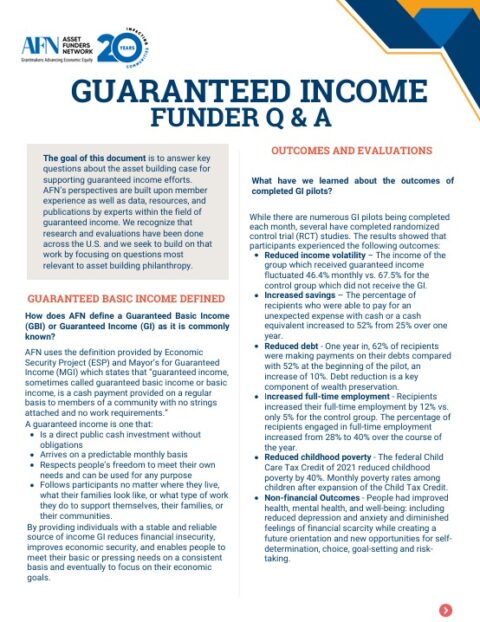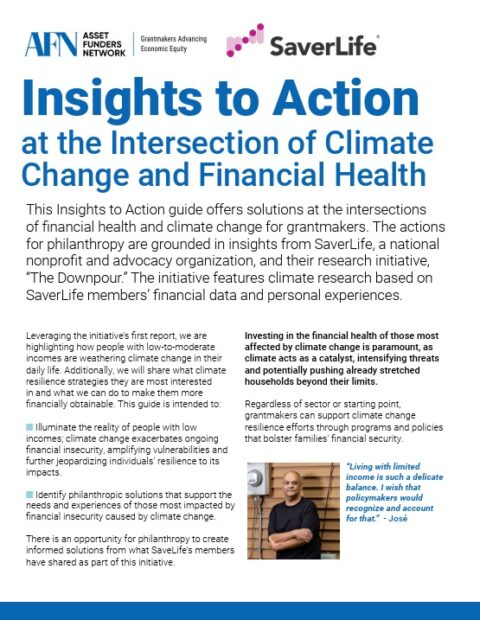The Financial Ruins Caused by Health Costs
On Tuesday, March 23rd, AFN held a 90 minute engaging discussion about medical debt and its inequitable impact on the financial security of households across the US.
The experiences of individuals as they navigate the health care system vary widely. Those who are uninsured or underinsured, and even those who are lucky enough to have coverage, often receive unaffordable bills for medical care that go unpaid, which turn into debt that goes into collections. The combination of rising out of pocket medical expenses and insufficient and unstable income – including widespread unemployment caused by crises like COVID-19 – mean that households are shouldering more medical costs and downstream financial consequences than ever before.
Grantmakers can help support a range of solutions geared at helping individuals and households manage medical debt. This webinar:
- highlighted the lifecycle of medical debt,
- unpacked the complexities of medical debt and its impact on low-income families, and
- discussed strategies that can be pursued by the philanthropic community to support solutions.
SPEAKERS
Samantha Artiga, Kaiser Family Foundation
Steven Brown, Urban Institute
Amanda Holt, Maury Regional Hospital
Francine Hyman, Maryland Consumer Rights Coalition
Elena Marks, Episcopal Health Foundation
Joanna Ramani, Aspen Institute Financial Security Program
Mark Rukavina, Community Catalyst
Rob Watkins, Tennessee Justice Center
RESOURCES
This webinar and associated brief are generously sponsored by:

